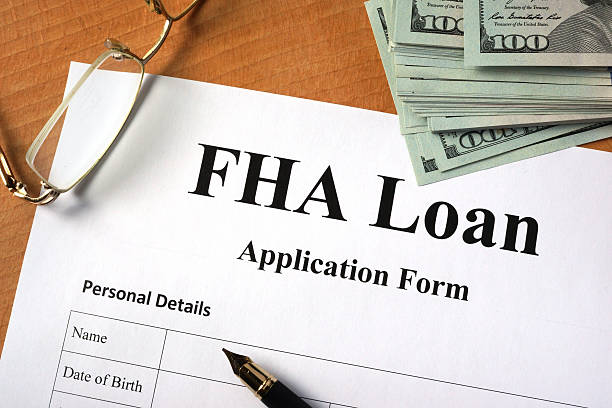Mortgage refinancing is a financial strategy that many homeowners consider at some point during the life of their loan. Refinancing means replacing your current mortgage with a new one, usually to take advantage of better terms, such as a lower interest rate, a different loan term, or to tap into your home’s equity. However, refinancing is not always the right choice for everyone. In this article, we’ll explore the factors you should consider before deciding whether refinancing your mortgage is the best financial move for you.
What is Mortgage Refinancing?
At its core, refinancing means taking out a new mortgage to pay off your existing one. Homeowners typically refinance for a variety of reasons, with the most common being:
- Lower interest rates: Refinancing may allow you to lock in a lower interest rate, which could reduce your monthly payment and the total interest you pay over the life of the loan.
- Shorter loan term: Some homeowners refinance to a loan with a shorter term (e.g., from a 30-year mortgage to a 15-year mortgage), which can help them pay off their mortgage faster and save on interest.
- Cash-out refinancing: If your home has appreciated in value, you may be able to refinance for more than you owe and take out the difference in cash. This could be used for home improvements, debt consolidation, or other financial needs.
- Switching from an adjustable-rate mortgage (ARM) to a fixed-rate mortgage: If you have an ARM, refinancing could allow you to lock in a stable, predictable interest rate for the long term.
While refinancing can provide valuable financial benefits, it’s not a decision that should be made lightly. It’s important to weigh the pros and cons carefully and assess whether refinancing aligns with your long-term financial goals.
When to Consider Refinancing
- Interest Rates Have Dropped Significantly
One of the most common reasons homeowners refinance is to take advantage of lower interest rates. If interest rates have fallen since you took out your mortgage, refinancing could result in significant savings. Even a small reduction in your interest rate can make a big difference in your monthly payment and the amount of interest you pay over the life of the loan.
- Red Flag: Don’t assume that any rate drop automatically warrants refinancing. You should only refinance if the interest rate reduction is significant enough to make the process worthwhile. For example, a 0.5% reduction might not justify the costs associated with refinancing, but a 1% drop could be worth considering.
- Tip: A good rule of thumb is to look for at least a 0.75% to 1% drop in the interest rate before deciding to refinance.
- You Want to Pay Off Your Mortgage Faster
If you have the financial stability to handle higher monthly payments, refinancing to a shorter loan term (such as moving from a 30-year mortgage to a 15-year mortgage) could save you a significant amount of money in interest over time. Shorter-term loans typically come with lower interest rates, and you’ll pay off your home much quicker.
- Benefit: While your monthly payments may be higher, refinancing to a shorter term means you’ll pay less overall interest, which can be a smart move if you want to own your home outright sooner rather than later.
- Caution: Make sure your budget can accommodate the higher payments. If you refinance to a 15-year mortgage but stretch your budget too thin, it could create financial strain down the road.
- You Need to Tap Into Your Home’s Equity
Cash-out refinancing allows you to access the equity in your home, which can be used for a variety of purposes such as home renovations, paying off high-interest debt, or funding educational expenses. If you’ve built up significant equity in your home, refinancing could be an opportunity to access that cash.
- Considerations: Using home equity to pay off high-interest debt (like credit card balances) can be a smart way to lower your overall interest payments. However, borrowing against your home can be risky—if you don’t repay the loan, you could risk losing your home.
- Tip: Ideally, use cash-out refinancing for investments that will increase the value of your property or improve your financial situation in the long term.
- You’re Dealing with an Adjustable-Rate Mortgage (ARM)
If you’re currently paying an adjustable-rate mortgage (ARM), you may want to refinance to a fixed-rate mortgage to lock in a stable rate. ARMs typically start with lower interest rates than fixed-rate loans, but they can adjust after a set period, leading to higher payments and potentially large fluctuations in your monthly mortgage costs.
- Benefit: Refinancing to a fixed-rate mortgage provides predictability, as your interest rate—and your payments—remain the same for the life of the loan.
- Consideration: If you’re in the early years of an ARM and your payments are still relatively low, refinancing may not be necessary unless you anticipate rising rates in the near future.
When Refinancing May Not Be the Right Move
While refinancing can offer many advantages, there are certain situations where it may not be the best option. Here are some factors to consider:
- The Costs of Refinancing Are Too High
Refinancing is not free. There are closing costs associated with taking out a new mortgage, which can include application fees, appraisal fees, title insurance, and other expenses. These costs typically range from 2% to 5% of the loan amount. If you don’t plan to stay in your home for a long time, the costs of refinancing may outweigh the benefits.
- Tip: Consider how long you plan to stay in your home. If you’re planning to move in a few years, it may take too long to recoup the costs of refinancing.
- Your Credit Score Has Dropped
Your credit score plays a significant role in determining the interest rate you’ll receive when refinancing. If your credit score has dropped since you originally took out your mortgage, you may not qualify for the best rates. In fact, if your credit score is too low, refinancing may not be an option at all.
- Solution: If your credit score has taken a hit, consider taking time to improve it before refinancing. This might mean paying down high-interest debt, making timely payments on existing obligations, or reducing your credit card balances.
- You’re Nearing the End of Your Loan Term
If you’re only a few years into your mortgage and your loan balance is relatively low, refinancing might not be worth the effort. By this stage, a large portion of your mortgage payments are going toward the principal, and refinancing could reset the clock on your loan.
- Consideration: If you’re nearing the end of a 30-year loan and have been paying down your principal for many years, refinancing could extend the term of your mortgage and increase the total interest you pay in the long run.
Key Takeaways
Mortgage refinancing can be a smart financial move if it aligns with your goals, but it’s not the right choice for everyone. Here are some key takeaways:
- Refinance if you want to secure a lower interest rate, shorten your loan term, switch to a fixed-rate mortgage, or access your home equity for financial goals.
- Don’t refinance if the costs of refinancing outweigh the potential benefits, if you’re nearing the end of your loan term, or if your credit score isn’t strong enough to secure a good rate.
- Always shop around for the best rates and terms, and take the time to fully understand the costs involved before committing to a refinance.
Ultimately, the decision to refinance depends on your personal financial situation, your long-term goals, and the current state of the market. By carefully weighing your options, you can make a decision that benefits your financial future.

